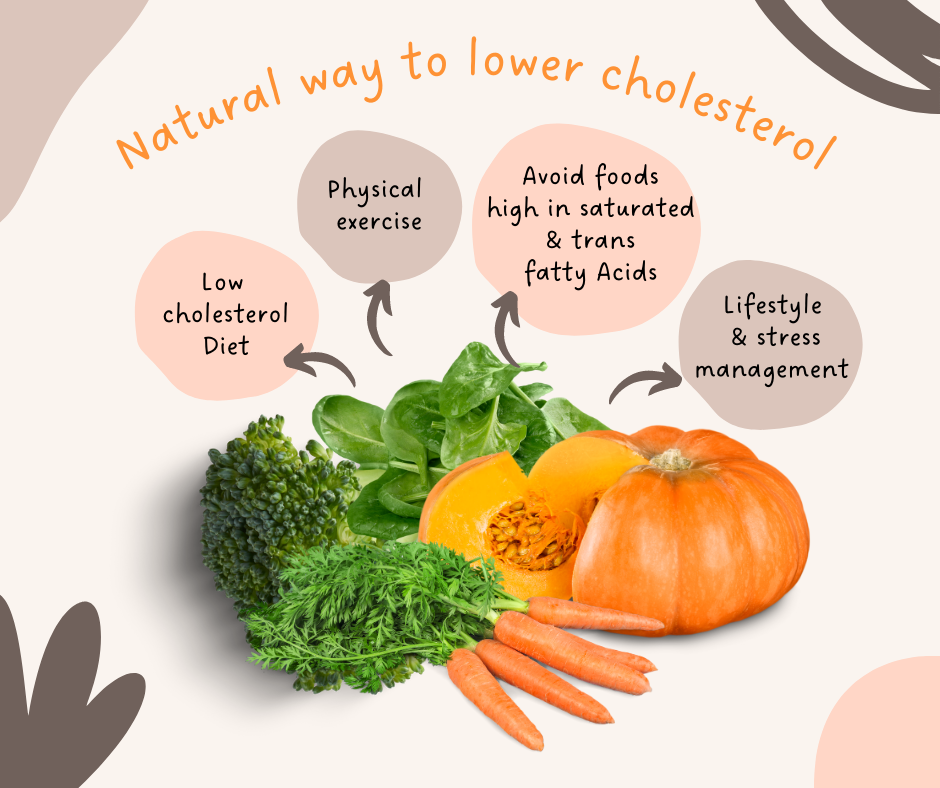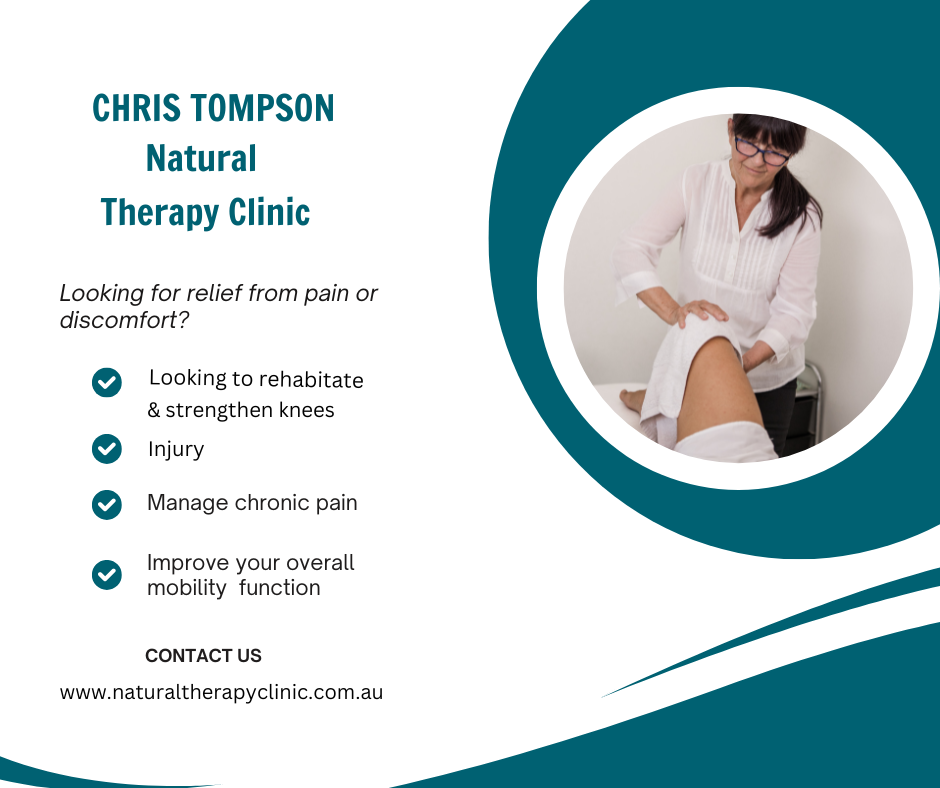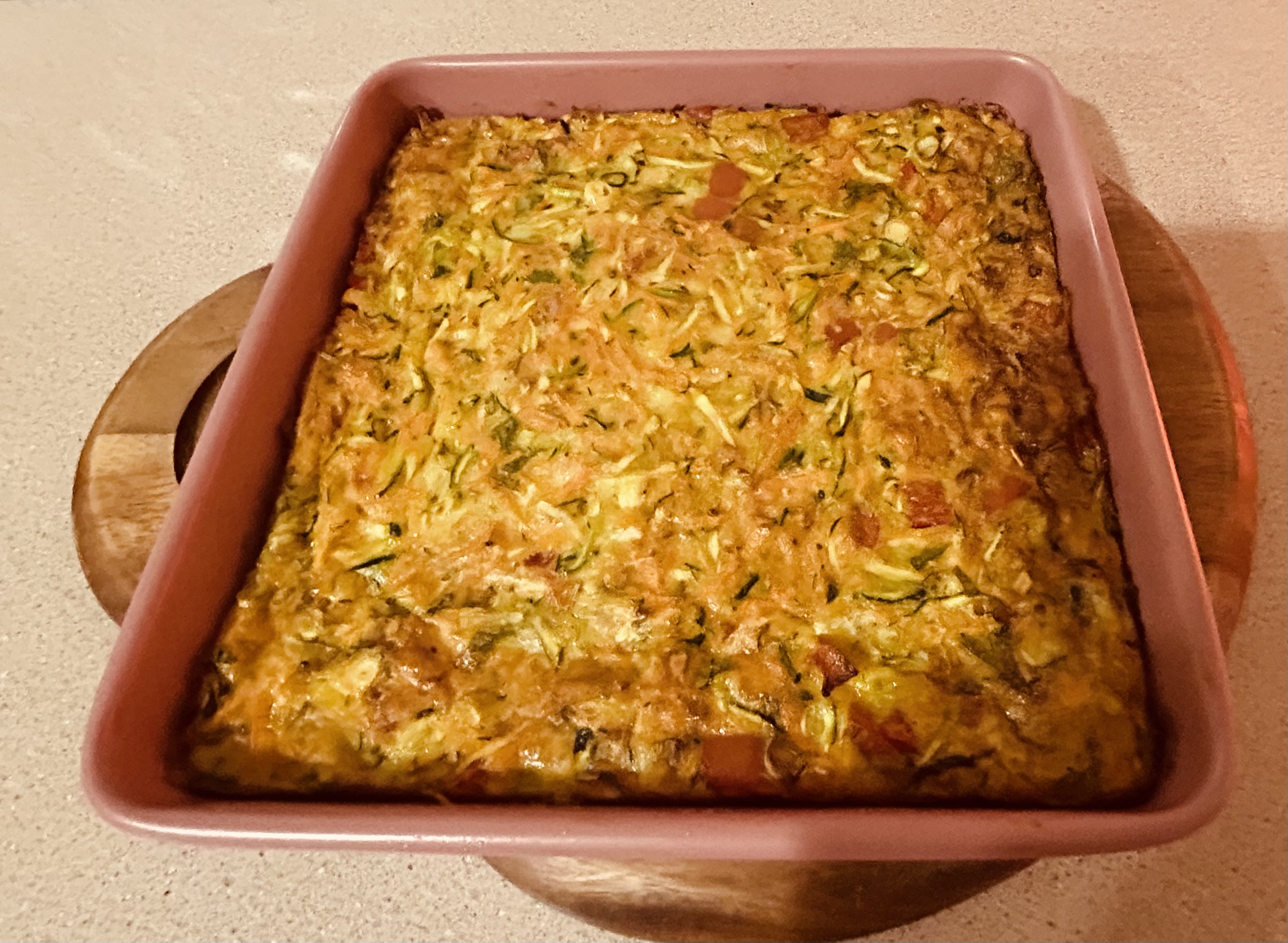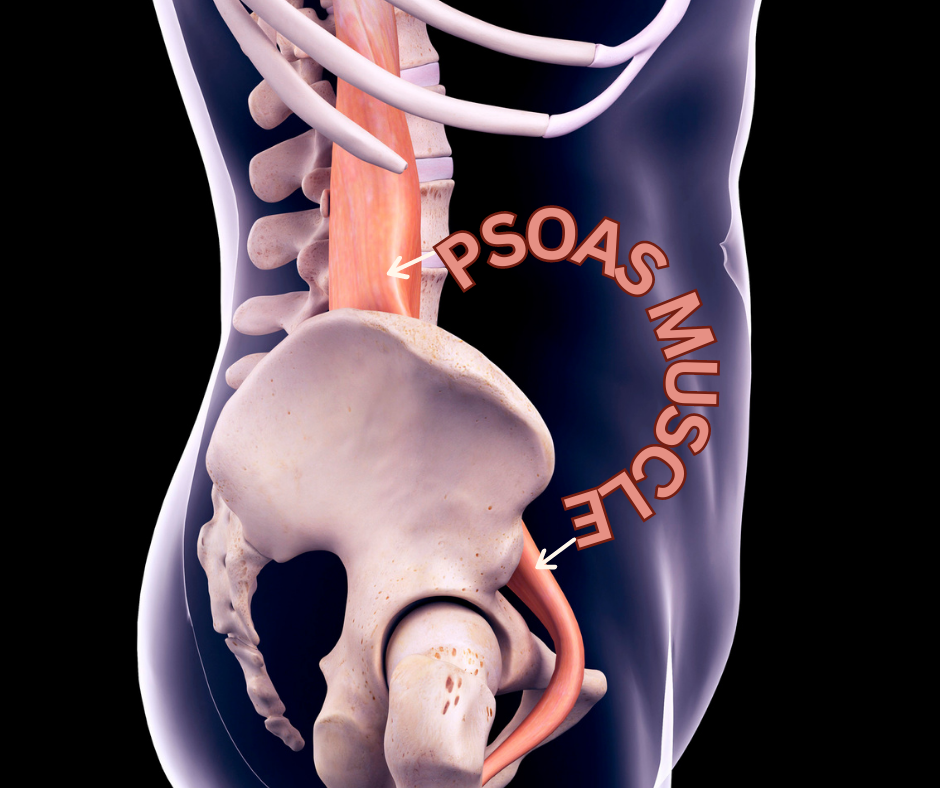How to lower cholesterol: Cholesterol comes from two sources. Your liver makes all the cholesterol you need. The remainder of the cholesterol in your body comes from foods from animals. For example, meat, poultry and dairy products all contain dietary cholesterol. https://www.health.harvard.edu/heart-health/how-to-lower-your-cholesterol-without-drugs:
Those same foods are high in saturated and trans fats. These fats cause your liver to make more cholesterol than it otherwise would. For some people, this added production means they go from a normal cholesterol level to one that’s unhealthy.
High cholesterol is a common health problem that affects millions of individuals worldwide. It occurs when there is too much cholesterol in the blood, which can lead to heart disease & other serious health problems. While genetics can play a role in high cholesterol levels, lifestyle factors such as diet are also an important consideration. In this article, we will discuss a diet to lower cholesterol & what causes high cholesterol.
Change of Lifestyle:
Natural ways to lower cholesterol without medication
- Maintaining a healthy weight
- Stop smoking
- Eat a clean healthy diet https://www.nutritionalhealthenterprises.com/health-benefits-of-a-mediterranean-diet/
- Increase you plant based foods
- Reduce animal protein to once to twice a week, always lean
- Relaxation exercises, meditation & breathing exercises
- Increase you physical exercise to at least 3 times a week for about 30 to 45 mins per session (walking, yoga, pilates & cardio)
- Reduce alcohol
- Self care
- Avoid takeaways & processed foods.
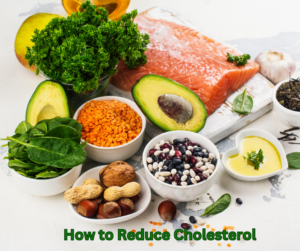
Diet for lowering cholesterol:
Making changes to your diet can be an effective way to lower your cholesterol levels. Here are some dietary recommendations to promote healthy cholesterol levels foods that lower cholesterol fast:
Eat More Fibre – Soluble fibre, found in foods such as:
- Oatmeal & barley
- Beans/ legumes – Mung beans, Black beans, black-eyed peas, cannellini beans, chickpeas (garbanzo beans), great northern beans, kidney beans, lima beans, pinto beans & lentils
- Fruits & vegetables – Fruits and vegetables are rich in antioxidants and other nutrients that can help lower LDL cholesterol levels and increase HDL cholesterol levels.
Can help lower cholesterol levels by reducing the absorption of cholesterol in the bloodstream.
Choose Healthy Fats: Monounsaturated & polyunsaturated fats, found in foods such as:
- Nuts – Almonds, macadamia, Brazil, walnuts, cashews, pistachios & pecans
- Seeds – Flaxseeds, chia seeds, pumpkin seeds, sunflower seeds, hemp seeds & sesame seeds
- Avocado & olives
- Fatty fish – Salmon, mackerel & sardines, can help lower cholesterol levels
- Healthy Oils – Olive oil, flaxseed, sesame, grapeseed, sunflower, avocado hemp seed oil & walnut
Include Plant Sterols and Stanols: Plant sterols & stanols are natural substances found in plants that can help block the absorption of cholesterol in the bloodstream. They can be found in fortified foods such as:
- Margarine
- Orange juice
- Yogurt
Eat More Fruits and Vegetables:
Fruits and vegetables are rich in fibre, vitamins & antioxidants, which can help reduce inflammation & lower cholesterol levels.
Choose Whole Grains: Whole grains, such as:
- Brown rice
- Quinoa
- Whole-wheat bread
- Buckwheat
- Bulgur wheat
- Millet
- Whole Barley
- Spelt
Can help lower cholesterol levels by providing fibre & other nutrients.
Limit Alcohol Consumption: Excessive alcohol consumption can increase cholesterol levels.
- Limit your intake to no more than one drink per day for women
- Two drinks per day for men
Herbs to lower cholesterol:
- Fenugreek seeds & leafs
- Artichoke extract
- Yarrow
- Holy Basil
- Ginger
- Turmeric
- Rosemary
- Green tea
Foods That Increase Cholesterol:
- Red Meat: Red meat is high in saturated & trans fats, which can increase LDL cholesterol levels. Pork, bacon, luncheon meat & offal (liver, kidney, stomach, tripe & brains)
- Fried Foods: Fried foods such as french fries & fried chicken are high in trans fats, which can increase LDL cholesterol levels & decrease HDL cholesterol levels.
- Processed Foods: Processed foods such as chips, crackers, and cookies are often high in saturated and trans fats, which can increase LDL cholesterol levels.
- Butter & Cream: Butter & cream are high in saturated fats, which can increase LDL cholesterol levels.
- High-Fat Dairy Products: High-fat dairy products such as whole milk, cheese & ice cream are high in saturated fats, which can increase LDL cholesterol levels.
Causes Of high cholesterol:
- Consuming a diet high in saturated and trans fats can increase cholesterol levels.
- Consuming a diet low in fibre and whole grains can also contribute to high cholesterol levels.
- Lack of Physical Activity – Physical inactivity can contribute to high cholesterol levels, as regular exercise can help lower LDL (bad) cholesterol levels & increase HDL (good) cholesterol levels.
- Genetics: Some individuals may have a genetic predisposition to high cholesterol levels, which can be inherited from family members.
- Obesity: Obesity can contribute to high cholesterol levels, as excess body fat can increase LDL (bad) cholesterol levels & decrease HDL (good) cholesterol levels.
- Smoking: Smoking can contribute to high cholesterol levels by damaging the blood vessels & increasing inflammation, which can raise LDL (bad) cholesterol levels.
- Underlying Health Conditions: Certain health conditions, such as diabetes, hypothyroidism & kidney disease, can contribute to high cholesterol levels.
It’s important to note that while certain foods may be high in HDL or LDL cholesterol, a healthy diet is about balance & moderation. Consuming a variety of nutrient-dense foods, limiting saturated & trans fats, maintaining a healthy weight & regular physical activity can all help promote healthy cholesterol levels.
Impact of High cholesterol on the Body:
Cholesterol-related diseases – The atherosclerotic plaques caused by high cholesterol can occur in any artery. As a result, you may develop:
- Coronary heart disease – coronary heart disease is the result of atherosclerosis in the arteries that carry blood to your heart. Lack of blood weakens your heart & causes problems such as chest pain, shortness of breath & arrhythmias.
- Carotid artery disease – The carotid arteries carry blood to your brain. When they develop atherosclerosis, you’re at risk for a stroke.
- Peripheral artery disease – plaque may accumulate in the arteries that supply your stomach, arms, and head, but it most often affects your legs. In your legs, peripheral artery disease causes painful muscle cramps when you walk & can lead to sores that don’t heal.
- Chronic kidney disease – Cholesterol plaques can occur in the arteries that deliver blood to your kidneys
Conclusion:
High cholesterol levels can be a serious health concern that increases the risk of heart disease and other health problems. While genetics can play a role in high cholesterol levels, lifestyle factors such as diet are also an important consideration.
HDL & LDL are two types of cholesterol that are found in the body. HDL stands for high-density lipoprotein, while LDL stands for low-density lipoprotein. While both types of cholesterol are important for the proper functioning of the body, high levels of LDL cholesterol can increase the risk of heart disease, while high levels of HDL cholesterol can help protect against heart disease.
Disclaimer:
All content & media on the Natural Therapy Clinic is created & published online for informational purposes only.

